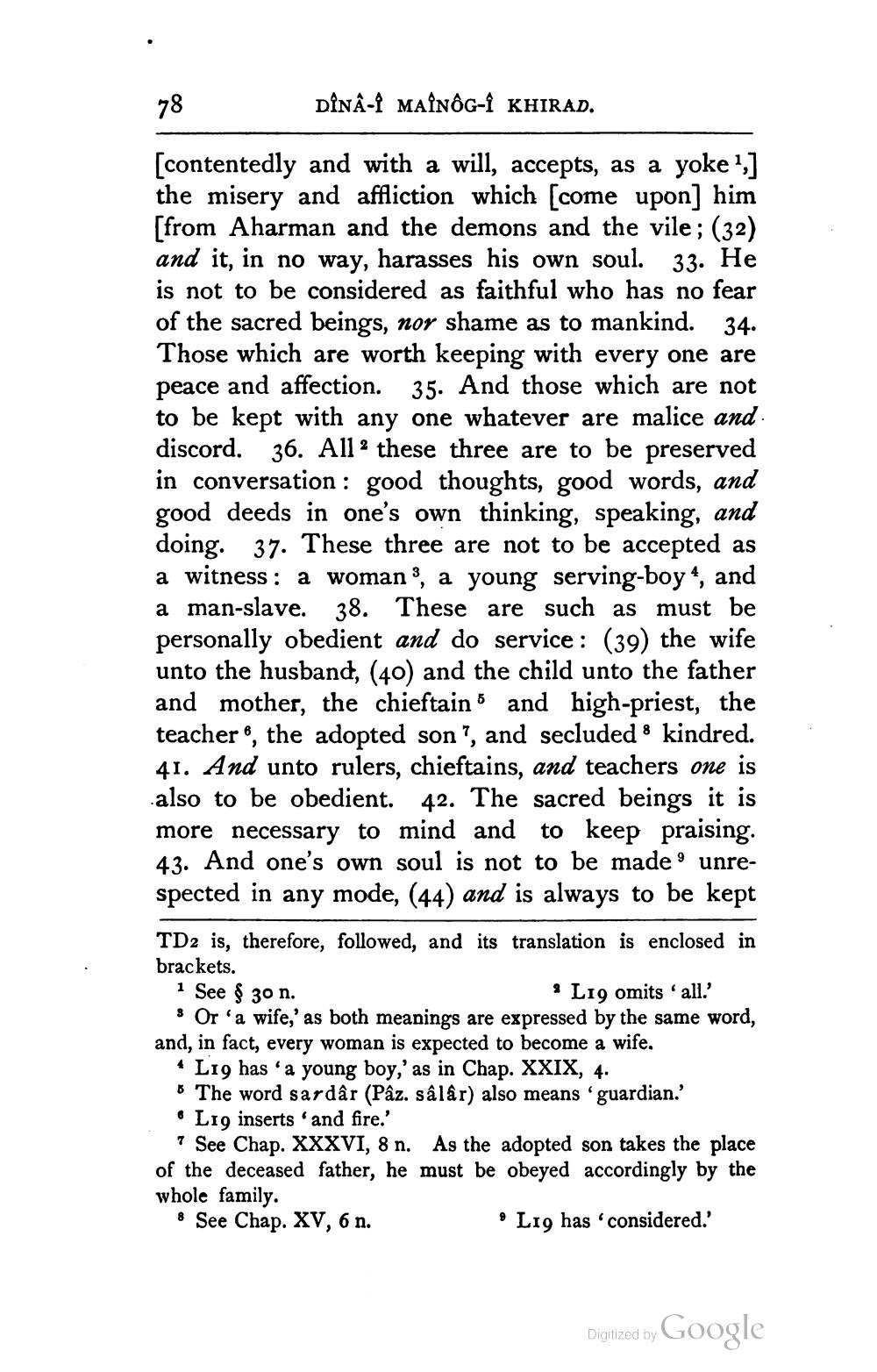________________
DÎNÂ-9 MAÎNÔG-I KHIRAD.
[contentedly and with a will, accepts, as a yoke 1,] the misery and affliction which [come upon] him [from Aharman and the demons and the vile; (32) and it, in no way, harasses his own soul. 33. He is not to be considered as faithful who has no fear of the sacred beings, nor shame as to mankind. 34. Those which are worth keeping with every one are peace and affection. 35. And those which are not to be kept with any one whatever are malice and discord. 36. All 2 these three are to be preserved in conversation : good thoughts, good words, and good deeds in one's own thinking, speaking, and doing. 37. These three are not to be accepted as a witness: a woman 3, a young serving-boy 4, and a man-slave. 38. These are such as must be personally obedient and do service: (39) the wife unto the husband, (40) and the child unto the father and mother, the chieftain 6 and high-priest, the teachers, the adopted son ?, and secluded 8 kindred. 41. And unto rulers, chieftains, and teachers one is also to be obedient. 42. The sacred beings it is more necessary to mind and to keep praising. 43. And one's own soul is not to be made unrespected in any mode, (44) and is always to be kept TD2 is, therefore, followed, and its translation is enclosed in brackets. 1 See $ 30 n.
9 L19 omits all.' 3 Or a wife,' as both meanings are expressed by the same word, and, in fact, every woman is expected to become a wife.
* L19 has a young boy,' as in Chap. XXIX, 4. * The word sardâr (Pâz, sâlâr) also means 'guardian.' • L19 inserts and fire.'
? See Chap. XXXVI, 8 n. As the adopted son takes the place of the deceased father, he must be obeyed accordingly by the whole family. * See Chap. XV, 6 n.
L19 has considered.'
Digitized by Google




